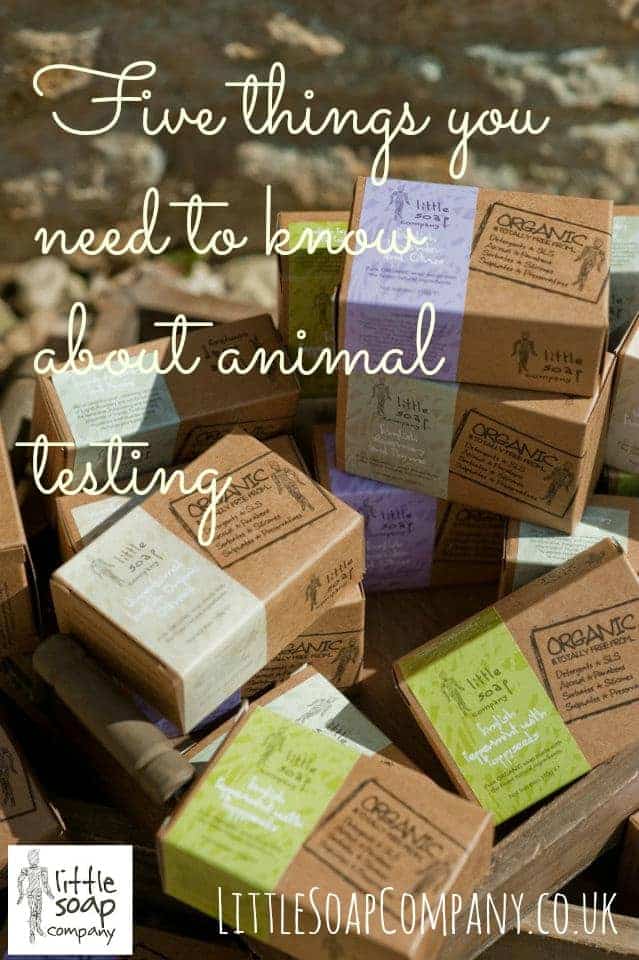Ask anyone with a sound mind, and they will tell you that the idea of torturing animals is absolutely abhorrent. And yet, without lifting a finger, many of us contribute towards this despicable act every single day. Often without realising. How can this be? Unfortunately there are still many manufacturers that routinely test their products on animals, and while we continue to buy those products, it simply will not end. It goes without saying that all products at Little Soap Company are cruelty free, but did you know that some of your other favourite cosmetics may not be? Here are five things you need to know about animal testing…
The testing of cosmetics on animals is banned in the UK…
… but that doesn’t mean that everything you buy is cruelty free. According to PETA UK, some countries make it compulsory for cosmetic companies to pay for testing on animals. As a result, companies are now ditching their ethical policies to extend their market. In the UK, you may be buying cruelty free products from a company that tests on animals elsewhere. The only way to be sure of a company’s ethical policies worldwide, is to refer to PETA US’ list.
There is no law that says household products cannot be tested on animals
So your cosmetics can be truly cruelty free, but the same cannot always be said for your household products. Another reason to swap the mass produced, chemical filled products for more natural alternatives we think!
A product that tells you it hasn’t been tested on animals may contain ingredients that have been tested
And this opens up a new can of worms, so to speak. Some companies are still able to benefit from using materials that were once tested on animals, without needing to test themselves- therefore are still reaping the rewards from testing on animals. Due to stringent health, hygiene and safety standards, it is easier for companies to have their product approved if they use ingredients that were once used on animals.
Testing of cosmetics can be done without animals
Not all, but some animal tests have been replaced recently by non-animal alternatives, but many have not yet been perfected. New and alternative tests have to be proven to be reliable and this can take a long time to establish. This test validation process means that it can take years to replace animal testing. If we end animal testing now, it would make it harder for manufacturers to produce new cosmetics, which begs the question: do we really need new cosmetics? Read more about new methods of testing that do not involve animals.
You need to read your labels carefully if you want to buy cruelty free products
Unfortunately, a label that claims a product is cruelty free still needs to be investigated, and labels that make no mention of it at all should ring alarm bells. There are no laws that prevent manufacturers from misleading consumers, so it’s up to you to find out the facts. If a product claims it has not been tested, read the ingredients label to see if any of those components have. Look for an official PETA symbol. Be weary of claims that a product is new and improved too- this often means new ingredients have been added, and they may have been tested.
What can you do?
Educate yourself on the brands that are trusted and clear out the products you have lurking that have either been used in testing or have ingredients that have been tested on animals. Follow our guide to ditching the mass produced cosmetics and creating an all natural make up bag.
Invest in the future of our world.


